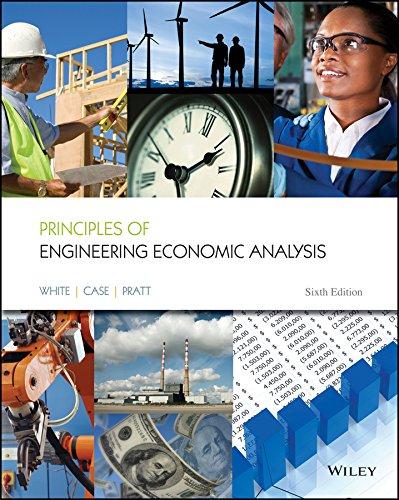Question
Bob decides to open a retirement account in order to retire in exactly 20 years. He starts by depositing $50,000 into an account that will
Bob decides to open a retirement account in order to retire in exactly 20 years. He starts by depositing $50,000 into an account that will earn him 6% annual interest compounded monthly. You don't know how much he will deposit each month yet, this will be part of the question below.
(a) (6 pts) Write a difference equation to describe the amount of money in the retirement account if his initial deposit is $50,000, but the monthly deposits are unknown. Use the letter "d" to denote the deposit amount.
(b) (6 pts) Write the solution to the difference equation.
(c) (6 pts) How much money will be in his retirement account after 20 years if he deposits $100 per month?
(d) (6 pts) If he wants to have exactly $500,000 after 20 years, how much will he need to deposit each month?
(e) EXTRA CREDIT (bonus +5 points). After retirement, Bob stops depositing money and starts spending the money in his retirement account (but his account still earns 6% annual interest compounded monthly). If he wants to withdraw the same amount from his account every month, what is the maximum amount he can withdraw in order to make the retirement account last indefinitely?
Step by Step Solution
There are 3 Steps involved in it
Step: 1

Get Instant Access to Expert-Tailored Solutions
See step-by-step solutions with expert insights and AI powered tools for academic success
Step: 2

Step: 3

Ace Your Homework with AI
Get the answers you need in no time with our AI-driven, step-by-step assistance
Get Started


